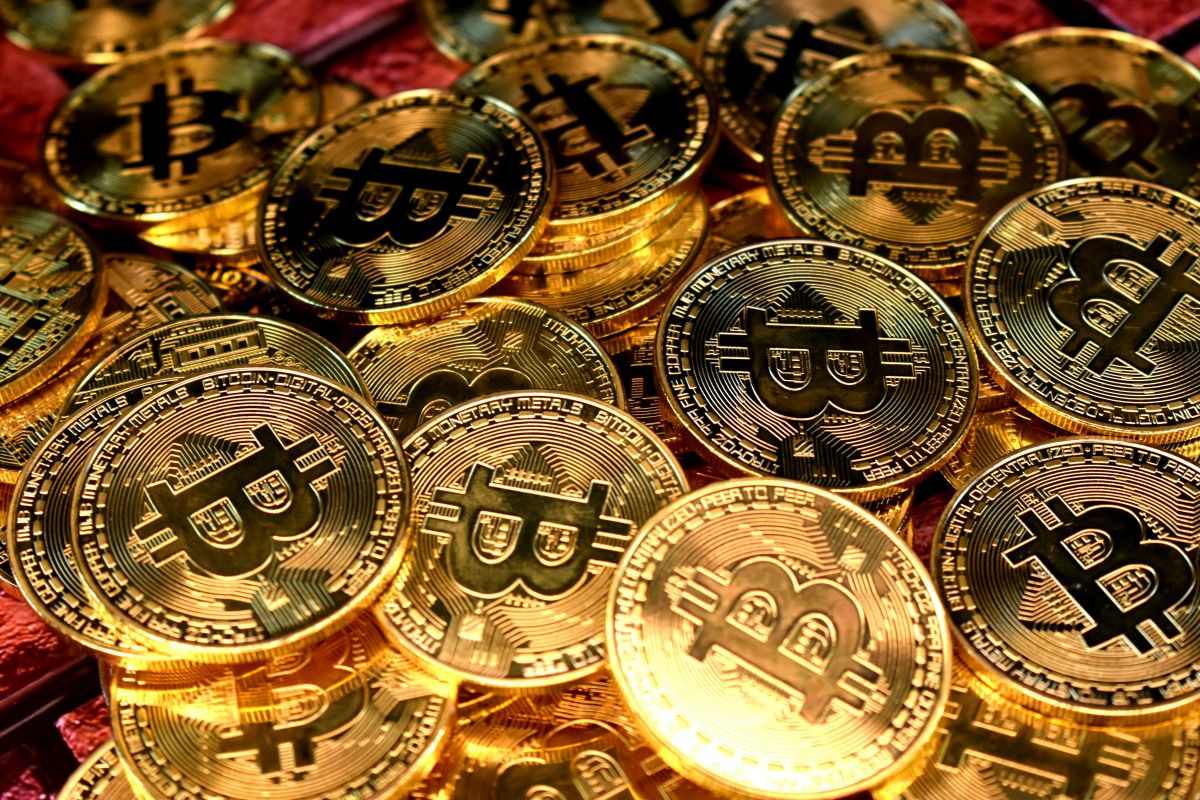Might Bitcoin drastically reduce inflation in emerging countries? 2023 is the year we will find out!
Introduction
Recently, inflation has been a problem everywhere, but it can be especially tragic in consequence in third-world countries. When the prices of goods and services tend to go up over time and the value of the local currency decreases, it can be difficult for people to afford necessities, and it can lead to economic instability. Bitcoin, however, can be the answer to inflation in developing countries.

- Introduction
- Developing countries and poverty
- The impact of Bitcoin on developed vs. developing countries
- Can Bitcoin help bank the unbanked?
- How does cryptocurrency help in improving developing countries?
- Why is inflation a problem?
- Why are third-world countries embracing Bitcoin?
- Which countries have adopted Bitcoin as legal tender, and how have they done it?
- FAQs
- Conclusion
The answer to this question depends on a variety of factors, but it is undeniable that Bitcoin has the potential to help combat inflation in developing countries. With its decentralized nature and global reach, Bitcoin offers an alternative to traditional currency systems which can be subject to manipulation by governments or central banks. Moreover, as more people become aware of the benefits of Bitcoin and begin to adopt it as a means of payment, its value could rise as demand increases. This would allow people in developing countries to benefit from more stable prices when purchasing goods or services.
Furthermore, Bitcoin provides an efficient method for cross-border payments which can be especially helpful to those living in developing countries with limited access to banking services. By using Bitcoin, people in these countries can send and receive money quickly and cheaply, without having to go through traditional banking channels. This way, individuals in developing nations can avoid the pitfalls of expensive transfer fees and high exchange rates which can further erode their purchasing power.
Finally, Bitcoin may provide more economic opportunities for those living in developing countries. By enabling businesses to receive payments from anywhere in the world, they can access global markets and increase their potential customer base. This could lead to increased economic growth, job creation, and improved standards of living for those living in these nations.
To conclude, Bitcoin certainly has the potential to help combat inflation in developing countries. Its decentralized nature, global reach, and efficiency make it an ideal choice for those living in these nations. With the right regulations in place to protect users, Bitcoin could become a viable alternative to traditional forms of currency and create more economic opportunities for those who need it most.
Developing countries and poverty
According to the World Bank, consumer price inflation in low-, middle- and high-income countries was 9.1% on average at the end of its annual on June 2022. This shows the most significant increase in inflation in 40 years.
The majority of the world’s poor people live in developing countries. According to World Vision, 1.3 billion people across 107 developing countries live in multidimensional poverty. This accounts for staggering 22% of the entire global population, with 84.3% living in South Asia and sub-Saharan Africa.
Multidimensional poverty encompasses financial difficulty, poor health, lack of education, violence, and disempowerment. Inflation is a significant problem in many developing countries.
Reasons why inflation is such a problem in developing countries
Poor are particularly vulnerable to the effects of inflation. This is because they spend more of their income on essentials, such as food and fuel, and these become increasingly expensive when inflation is high. This can leave them with less money to spend on other things or even force them to cut back on essentials to make ends meet.
Even if someone manages to make savings, their value diminishes, making it harder to finance investments. This is because when prices rise, the purchasing power of savings reduces. This can make it more difficult for businesses to expand and create jobs, which can, in turn, lead to more poverty.

Ways developing countries can try to counter inflation
- Using price controls – this involves the government setting maximum prices for certain goods and services. It can help keep prices down, but it can also lead to shortages if businesses cannot increase their prices to cover their costs.
- Using monetary policy – This involves the government changing interest rates and the money supply to control inflation. While potentially effective, it can also lead to economic instability.
SinceBitcoin is not subject to the same controls as traditional fiat currencies, you can use it for payments without having to worry about inflation. Bitcoin can also send money overseas without having to pay high fees.
The impact of Bitcoin on developed vs. developing countries
In developing countries, where financial systems are often unstable or nonexistent, Bitcoin can have a much more profound effect. In these cases, Bitcoin can provide access to financial services that would otherwise be unavailable and help combat inflation by providing a more stable store of value.
While the price of Bitcoin does fluctuate, it has generally trended upwards over time. This means that if you hold Bitcoin, your purchasing power is likely to increase over time. This is in contrast to fiat currencies, which are often subject to inflationary pressures.
People living in countries with volatile currencies use Bitcoin to send money internationally without incurring high fees. You can use Bitcoin if you live in Venezuela and want to send money to family in the United States and avoid the high costs associated with sending fiat currency.
Bitcoin can be a helpful tool for people living in developing countries. It can provide access to financial services and hedge against inflation.
Can Bitcoin help bank the unbanked?
The world’s poorest and most vulnerable people live in countries where banking services are unavailable or unreliable. People often rely on informal finance systems such as money lenders and pawn shops in these nations. However, these services can be costly, with high-interest rates and fees that can trap people in a cycle of debt.
Bitcoin can help to provide banking services to the unbanked. For example, sending and receiving money using Bitcoin is quick and cheap. This can help people in countries with unstable economies to access essential financial services.
Bitcoin can help to promote economic development in third-world countries. By providing access to banking services and a stable store of value, Bitcoin can help to encourage entrepreneurship and investment. This can lead to job creation and economic growth.
How does cryptocurrency help in improving developing countries?
Bitcoin is a more stable currency than is currently available in many countries. Since cryptocurrencies are not subject to the same inflationary pressures as traditional fiat currencies, they can act as a hedge against inflation. It also provides a cheaper and faster way to send money internationally. Traditional methods like wire transfers can be expensive and slow, but Bitcoin transactions are quick and affordable. This can significantly help people in developing countries who need to send money back home to their families.
Why is inflation a problem?
Third-world countries often suffer from high inflation rates; some of the factors that cause inflation include government corruption, economic mismanagement, and currency devaluation.
Bitcoin can help fight inflation in some ways:
- It is a decentralized currency, which means it is not subject to the whims of governments or central banks. This makes it much less likely to be impacted by inflationary pressures.
- Bitcoin is scarce, with a limited supply of 21 million coins. This makes it a valuable asset that can act as a hedge against inflation.
- Bitcoin is divisible, so you can use it to purchase goods and services even when prices are rising.
- Bitcoin is easy to transport and store, so people can save or invest their money without worrying about it being stolen or lost.
Bitcoin is becoming increasingly popular and accepted as more businesses are beginning to take it as a form of payment.

Why are third-world countries embracing Bitcoin?
Bitcoin offers several advantages to users in third-world countries.
- It is much easier to obtain than traditional fiat currency.
- It is not subject to the same fluctuations as other currencies, making it a more stable store of value.
- It used to send money internationally without expensive fees or restrictions.
- Bitcoin is a decentralized currency, meaning any government or financial institution does not control it. This makes it resistant to inflation, as no central authority can print more money and devalue the existing supply.
- Bitcoin transactions are pseudonymous, meaning it is difficult to trace them back to an individual user. This could be helpful for users in countries with repressive regimes that may track and punish dissidents.
For these reasons, Bitcoin is becoming increasingly popular in third-world countries as a way to counter the effects of inflation and financial repression.
Which countries have adopted Bitcoin as legal tender, and how have they done it?
In June 2021, El Salvador made history by becoming the first country to adopt Bitcoin as a legal tender. The President of El Salvador, Nayib Bukele, announced the news on Twitter, saying that the legislature had approved his proposal with a “supermajority.”
El Salvador is the first sovereign nation to adopt Bitcoin as legal tender, though other countries have considered it. The move aims to combat inflation in the country, which has been a problem for many years. In March 2021, the Marshall Islands announced they would adopt cryptocurrency and officially adopted Bitcoin on 26 February this year. The Marshall Islands are a sovereign nation located in the Pacific Ocean and have their currency, the Marshallese dollar. The Islands recommends crypto as a more stable currency, not subject to the same volatility as the US dollar.
The Marshall Islands’ decision to adopt Bitcoin was motivated by a desire to create a more stable financial system for the country. The US dollar controls the Marshallese dollar, and the country’s economy relies on imports. This means the Marshall Islands is vulnerable to inflationary pressures from the US.
FAQs
Bitcoin is a digital asset and a payment system invented by Satoshi Nakamoto. Transactions are verified by network nodes through cryptography and recorded in a dispersed public ledger called a blockchain. Bitcoin is unique in that there are a finite number of them: 21 million.
Use of Bitcoins as a medium of exchange and a store of value.
There is a finite amount of Bitcoins; as the supply of bitcoins decreases, the price increases. This increase in price offsets the adverse effects of inflation.
Bitcoin risks of using Bitcoin include price volatility, hacking, and scams. Bitcoin can result in losses if bitcoins are bought at a high price or sold at a low price. Hacking can result in losses if wallets or exchanges are compromised. Scams can result in bitcoins sent through to fraudulent addresses.
The benefits of using Bitcoin include price stability, security, and privacy. Price stability offsets the effects of inflation. Transactions are recorded on a public blockchain.
Bitcoin can be used in third-world countries to counter inflation and increase security and privacy. The use of Bitcoin can help offset the effects of inflation by providing a finite asset that appreciates as the supply decreases.
Some challenges of using Bitcoin include infrastructure, education, and adoption. Education needs to be more awareness and understanding of Bitcoin among the population. Adoption is to the low number of people using Bitcoin in third-world countries.
Some solutions to these challenges include building infrastructure, increasing education, and promoting adoption. Promoting adoption is increasing the number of people using Bitcoin in third-world countries.
Conclusion
Inflation is a big problem in many third-world countries. Bitcoin can help to counter inflation by allowing people to store their money in a decentralized and trustless manner. By doing so, they can avoid the risk of devaluation of their money to inflation. Additionally, Bitcoin can also help to provide individuals with an alternative way to make transactions and store value, which can help to stabilize the economy. Overall, Bitcoin has the potential to help third-world countries counter inflation and stabilize their economies.
Related articles:
- Bitcoin vs. Inflation: The Ultimate Guide
- Bitcoin halving: The ultimate guide
- Bitcoin Market: BTC’s long-term outlook is optimistic
Disclaimer
In line with the Trust Project guidelines, please note that the information provided on this page is not intended to be and should not be interpreted as legal, tax, investment, financial, or any other form of advice. It is important to only invest what you can afford to lose and to seek independent financial advice if you have any doubts. For further information, we suggest referring to the terms and conditions as well as the help and support pages provided by the issuer or advertiser. MetaversePost is committed to accurate, unbiased reporting, but market conditions are subject to change without notice.
About The Author
Moses is an experienced freelance writer and analyst with a keen interest in how technology is disrupting the financial sector. He has written extensively on the subject of cryptocurrencies from an investment perspective, as well as from a technical standpoint. He has also been involved in trading cryptocurrencies for over two years.
More articlesMoses is an experienced freelance writer and analyst with a keen interest in how technology is disrupting the financial sector. He has written extensively on the subject of cryptocurrencies from an investment perspective, as well as from a technical standpoint. He has also been involved in trading cryptocurrencies for over two years.



















































